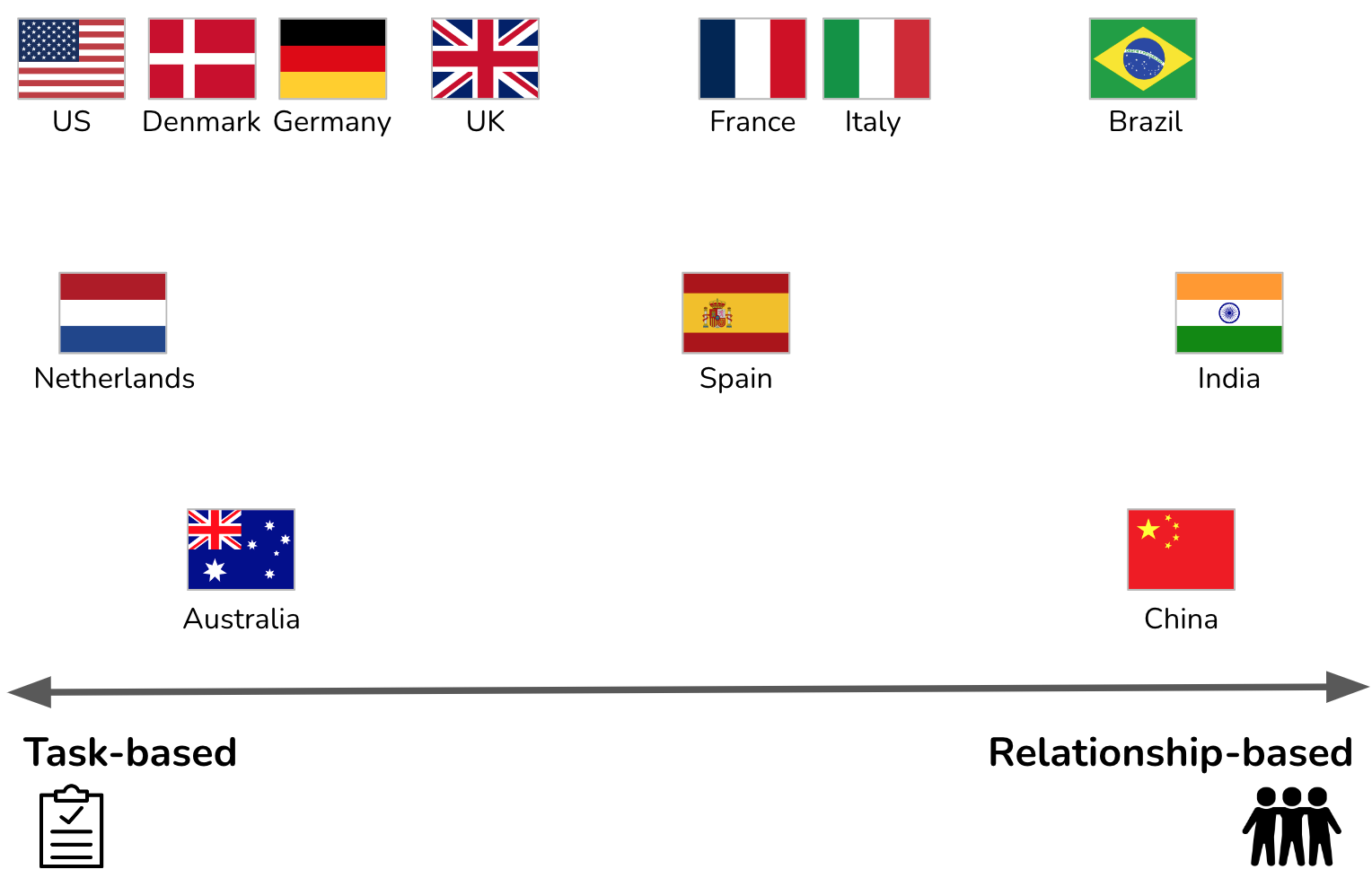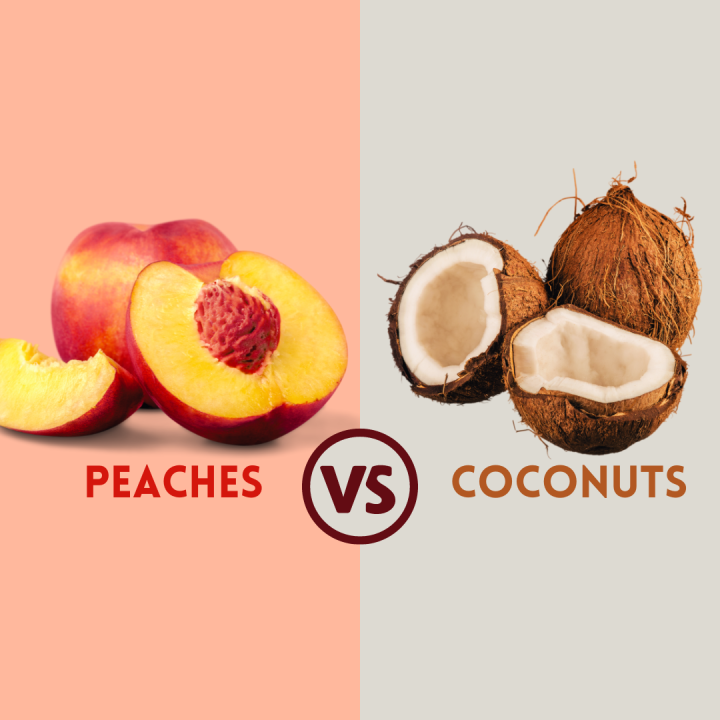Cultural Dimensions
TRUSTING
Two Types of Trust:
Relationship-Based or Task-Based?

Erin Meyer describes the dimension of trust as cognitive trust vs. affective trust. Cognitive trust is based on the confidence you feel in another person’s accomplishments, skills, and reliability. This is trust from the head. Affective trust arises from feelings of emotional closeness, empathy or friendship. This is trust from the heart.
For task-based cultures, trust is built through business-related activities. Work relationships are built and dropped easily based on the practical needs of the situation, and trust grows when deadlines are met and goals are achieved. In relationship-based cultures, there is greater emphasis on building trust through sharing meals, engaging in meaningful conversations, sharing personal interests and concerns, etc. Work relationships build slowly over the long term.
Key Characteristics
| TASK-BASED | RELATIONSHIP-BASED |
|
|

COUNTRY COMPARISON
The chart shows examples of where certain countries fall on the trusting dimension
In the following video, Erin Meyer explains how trust is build in different cultures. She also goes through the difference between cognitive and affective trust.
THE PEACH AND THE COCONUT MODEL
Culture experts Fons Trompenaars and Charles Hampden-Turner crafted the idea of comparing cultures as peaches and coconuts. Peach cultures are found most often in countries such as Canada, the USA or Brazil, where people are friendly (“soft”) with new acquaintances. Peaches are soft on the outside but difficult to crack the heart of the nut. They often network with strangers, move quickly to the first-name usage, share information about themselves. But after a little friendly interaction with a peach, you may suddenly get to the hard pit where the peach protects his/her real self and where the relationship suddenly stops.
In coconut cultures such Russia, Switzerland and Germany, people are initially more closed off from those they don’t have friendships with. They rarely smile at strangers, ask casual acquaintances personal questions, or offer personal information to those they don’t know intimately. But over time, as coconuts get to know you, they become gradually warmer and friendlier. And while relationships are built up slowly, they also tend to last longer.
Coconuts may react to peaches in a way that they interpret the friendliness as an offer of friendship and when people don’t follow through on the unintended offer, they conclude that the peaches are hypocritical.

Source: Erin Meyer, The Culture Map
Get in Touch With Us

